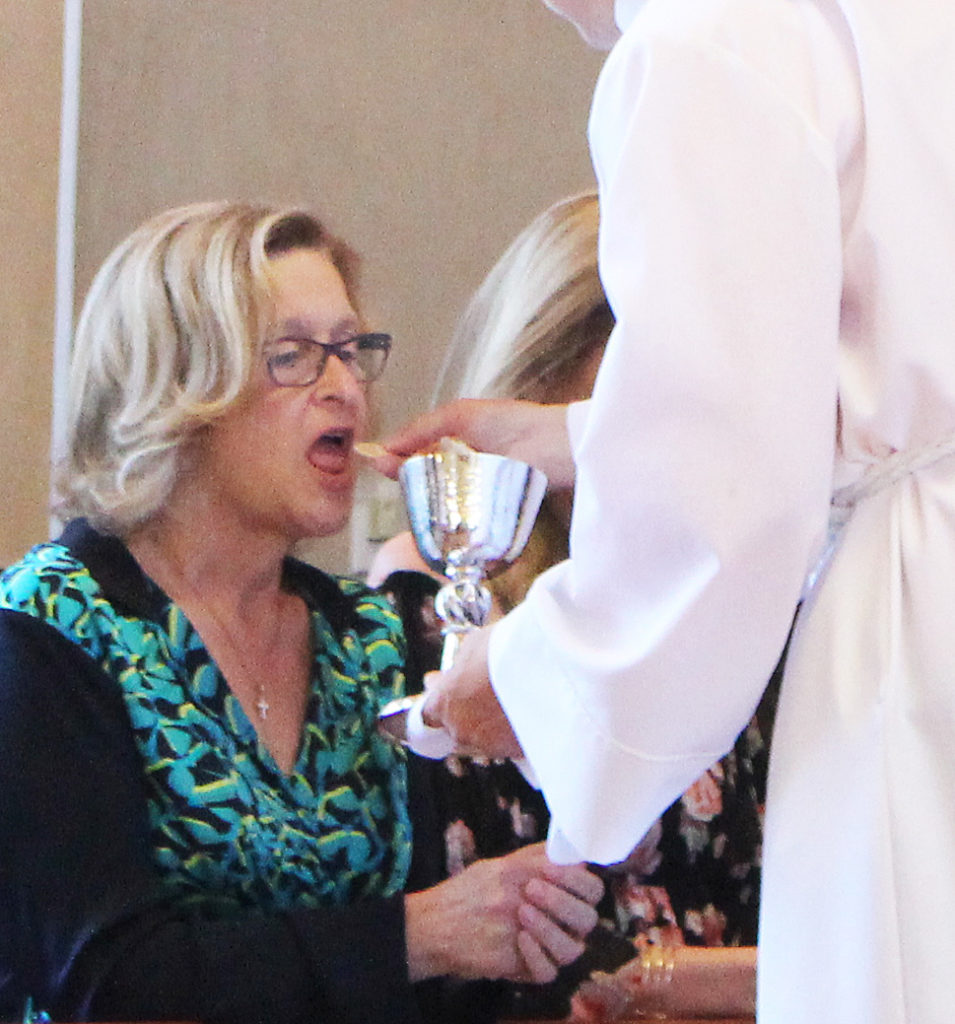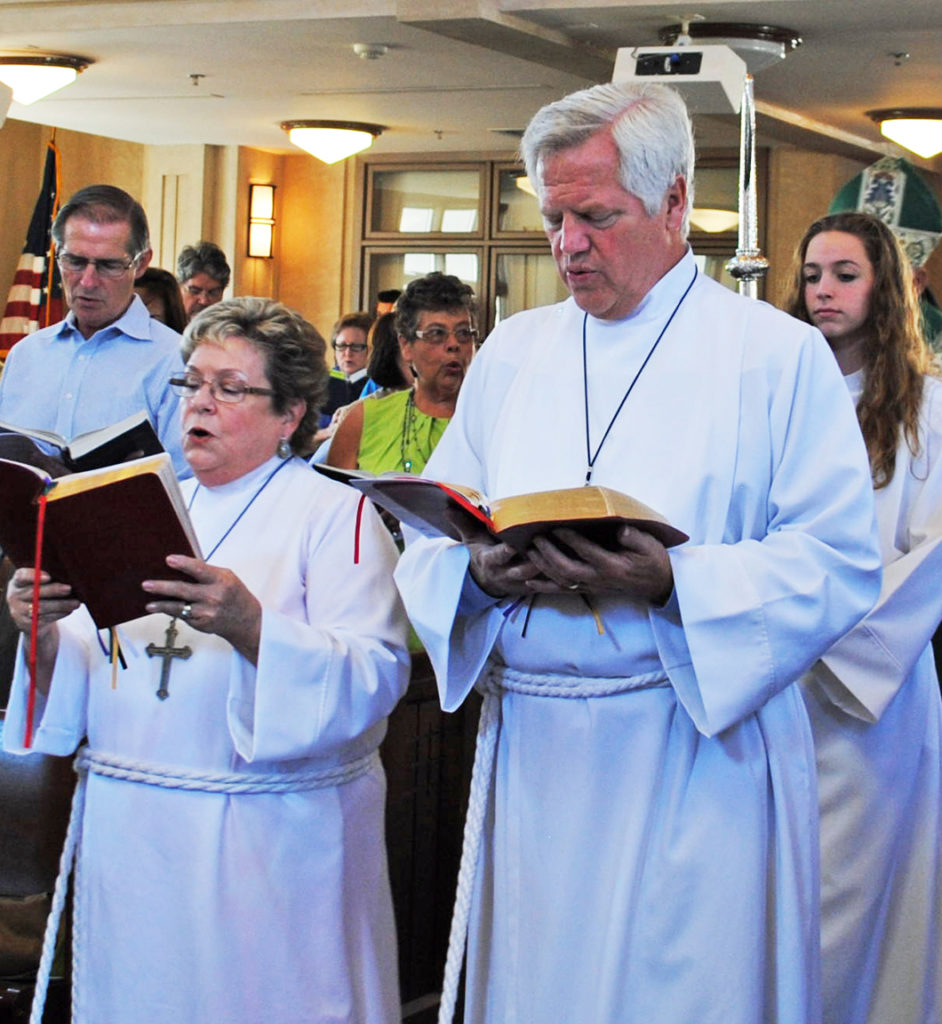
A parishioner receives the bread and wine from a lay eucharistic minister at St. John Chrysostom in Rancho Santa Margarita. Photo: Linda Allport
[The Episcopal News] For more than a year, members of the Commission on Ministry, along with diocesan and Bloy House leadership, have been developing a new process for licensing lay ministers according to the Canons of the Episcopal Church.
There are seven lay ministries identified in the canons eligible for licensing:
- Eucharistic minister – a lay person who administers the consecrated elements at Holy Eucharist.
- Eucharistic visitor – a lay person who takes the consecrated elements following a celebration of Holy Eucharist to members of the congregation who were unable to be present due to illness/infirmity.
- Preacher – a lay person who delivers sermons or homilies in a congregational setting.
- Evangelist – a lay person who presents the good news of Jesus Christ in such a way that people are led to follow Christ; assists with the community’s ministry of evangelism.
- Catechist – a lay person who prepares persons for baptism, confirmation, reception, and the reaffirmation of baptismal vows.
- Worship leader – a lay person who regularly leads public worship in a congregational setting.
- Pastoral leader – a lay person who exercises pastoral or administrative responsibility in a congregation under special circumstances.
In addition, our diocese will license two types of lay chaplains:
- Parish chaplain – a layperson who offers a ministry of listening, support, and spiritual accompaniment within his or her home parish community.
- Diocesan chaplain – a lay person who offers a ministry of listening, support, and spiritual accompaniment in a variety of ministry contexts outside his or her home parish community.

Loreen and Andy Guilford, lay eucharistic ministers at St. John Chrysostom in Rancho Santa Margarita, in the opening procession. Photo: Linda Allport
Licensing lay ministers for the work they do in their congregations will promote and celebrate their skills and contributions and allow them to expand their ministries to their deaneries and the larger diocese. Having licensed lay people who are trained and equipped for their work will create well-formed ministers who can assist their congregations during periods of transition or times without clergy. In addition, they can find new was to collaborate with ordained ministers to further God’s work in the community and in the world.
“Bishop Taylor and I are excited about moving forward with this lay licensing program – a wonderful opportunity for theological education for our whole diocese,” says the Rev. Canon Melissa McCarthy, canon to the ordinary. “It is an infusion of grace for lay leaders and clergy meeting the challenges of our unique time in history.”
Every diocese is charged with managing its own licensing process and defining the training required for such licensing. The lay licensing committee in our diocese, after much research, defined the requirements and competencies for each ministry and how the overall process would work. Bloy House and the Center for Lay Chaplaincy have designed a series of training courses to meet those competencies; and diocesan staff, along with Bloy House, have developed a distributed method for managing the application and renewal process. Please note that all existing lay ministers in these roles will need to go through the initial application process to review their training and establish their licenses.
A description of each ministry, the training requirements, and a detailed look at the application process can be found on the Commission on Ministry web page, under Call of the Laity. The application process and training schedules are still being finalized; further details will be added in the weeks ahead.
— Linda Allport is dean of Bloy House, the Episcopal Theological School at Los Angeles.
